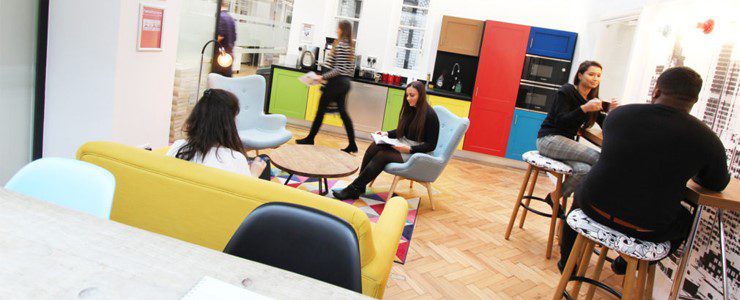
Meaningful ways to reward staff achievements
Today’s employers recognise the importance of rewards as a powerful tool for employee engagement. Research shows 91% of HR departments understand the need to reward staff achievements, enabling the company to retain top talent and keep employees happy.
If you’re building a business, the case for investing in employee reward schemes is strong. Companies are spending more than £36 billion globally on employee reward and recognition programmes today.
How do rewards impact employees?
Research shows 78% of lower and mid-level managers in the UK crave more recognition at work and will prioritise tasks for which they receive timely appreciation. However, only 22% “strongly agree” that their company provides them with the tools and guidance on how to effectively recognise employee efforts.
In addition, 38% of HR workers feel their company’s current recognition and reward programme is not as effective as it could be. More than 70% of employees agree their employer could do more to motivate them.
Many employees complain of feeling demotivated, with 43% feeling “invisible or undervalued” and 40% suffering a “lack of recognition”. These feelings of dissatisfaction can have far-reaching effects that impact the individual employee and the company as a whole.
Of those who feel demotivated, 62% say their mood gradually worsens; 49% suffer a reduction in productivity; 48% feel their mental health declines; 39% are less able to produce high-quality work; and 30% say their diet suffers, as they don’t feel like eating, or snack on junk food.
How often should staff be rewarded?
A common complaint from people who resign from their jobs is a lack of recognition and appreciation for the hard work they do. Companies with a culture of recognition have a 31% lower staff turnover rate.
According to a Gallup poll, the magic number for how often you should reward employees is every seven days. While this may seem very frequent, working in an environment of reward and recognition gives the company 14% higher productivity and customer service, according to research by Deloitte. Surveys have shown 75% of employees whose achievements are recognised at least monthly remain “satisfied” with their job.
Can there be too much praise heaped on employees? The answer is yes, although this may come as a surprise. If it reaches the stage where everything you do is being so highly praised by your manager that it feels a little forced and even false, it loses its impact.
People who do great things will demonstrate what constitutes truly outstanding work. This is the type of work that needs recognition. While it’s good to work in a positive environment, instigating some kind of rewards scheme at the end of each week is more beneficial than doing something every day, as it ceases to be special if it’s constant.
Broadly speaking, recognition needs to fit the occasion. Peer-to-peer recognition is also proven to have a more positive impact on results than manager-only recognition, so introduce a rewards scheme whereby colleagues can vote for each other too.
What kind of rewards are most effective?
Companies must strive to find meaningful ways to reward staff achievements. To keep employees engaged, happy and motivated, be creative and thoughtful when it comes to rewards.
A survey by the office snacks company Snacknation asked employees what their favourite rewards were. You may be surprised at the top answer, as it is a simple hand-written note of thanks and appreciation! This proves that less can be more.
The second most popular reward was an appointment for a relaxing massage, while the third was a selection of healthy snacks. The fourth most popular reward was a pair of tickets for a sporting event, followed by extra holiday time, a free meal, a personalised custom coffee cup, Uber credit and a free car rental.
Items such as sports tickets, or a free meal, fall under the category of meaningful experiences that build a connection with others, whether it’s a family member, friends or colleagues. Enjoying an experience and knowing why you’ve received it helps employees to feel more positive towards their employer and more inclined to work harder on their return to the office.
While a cash bonus is always welcome, so are experiences that can be enjoyed together, especially after the Covid-19 lockdown left everyone spending long periods alone. Another option to foster a sense of community could be a group trip awarded to employees as a thank-you.
It could be a visit to a destination of their choice – such as a spa day, theme park, a physical activity event such as paintballing, or even a staycation weekend. A smaller weekly reward can be boosted by having a larger monthly or quarterly reward too.
Can rewarding the same person feel unfair?
One dilemma employers have is when one employee constantly outperforms their peers. This can be a tricky subject, as research shows the perceived fairness of employee rewards is a reason for dissatisfaction.
No employer wants their rewards scheme to backfire. The idea of “fairness” determines whether employees will make the extra effort to reach organisational goals and achieve more in their own job. For this reason, companies must ensure their employee awards schemes are rooted in fair principles.
The perception that the scheme is unfair can have a devastating effect on the organisation, as it can create a climate of distrust and even hostility if the same person wins, week after week. The solution is to think carefully about your criteria, as an employer, for rewarding the workforce.
Research by HR Daily Advisor suggests the allocation of rewards must be consistent. For many employees in a sales environment, the rewards are based on attaining targets. In this kind of climate, the top performers will be known by everyone, from their peers to the management, so no one can deny their achievements and how much they deserve the reward. It can motivate other sales staff to try harder when they see what they can achieve when they reach their targets and go the extra mile.
In other environments, such as a non-sales office, it can be more complex. Different criteria can be applied that can spread the rewards out wider. The employer can ensure fairness concerns are answered by having a benchmark or comparison point.
The criteria can be based on personal skills, performance and capabilities in and employee’s individual role, no matter what this is. They can include the amount of effort and time the employee invests into achieving their goals and the impact of their performance on colleagues and the company as a whole.
Peer-to-peer rewards are useful because if colleagues have voted for the recipient in a fair and open way, everyone can see it is a just decision, without management interference.
How does coworking fit in with staff rewards?
The beauty of coworking is that 77% of UK employees say they are happy in their coworking space, according to research published on PR Newswire. They are already enjoying benefits that people working in a traditional office may not have including networking events, increased flexibility and access to snacks and meals when hungry.
The top in-office perks voted for by coworking employees were social events and access to coffee and snacks, both of which were cited by 94% of respondents. In addition, 55% enjoyed the opportunities to interact with other businesses, 53% enjoyed the increased flexibility and 51% appreciated the sense of community.
Bearing this in mind, the ideal rewards for teams in coworking spaces could relate to social and dining-related events, such as a free dining out experience in a plush restaurant, or extra holiday time. This is possible due to the flexible setup of coworking, as time off can be organised without disrupting the workflow.
Recognising staff achievements can take some planning, but it’s well worth it in the long term, as you will retain more employees, who will produce a higher standard of work and productivity.
© Nattakorn_Maneerat / Shutterstock.com


